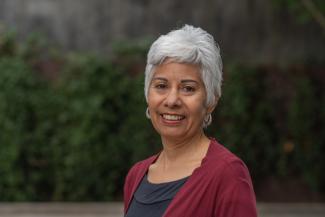
In this talk, Pulido considers the relationship between U.S. white nationalism and the Republican Party’s (GOP) record of climate obstruction. Though the fossil fuel industry’s campaign of disinformation has been well-documented, less understood are the politicians who do its bidding. While many assume the state is simply implementing the desires of the fossil fuel industry, what is called, regulatory capture, this assumes a nonracial state. Pulido argues that regulatory capture does not fully explain the current GOP’s commitment to blocking climate action. Instead, she suggest that “surplus” white nationalism has contributed to both climate denial and obstruction. Pulido defines surplus white nationalism as the excessive energy and power of white nationalism that cannot be contained or selectively controlled. Because it spills over onto seemingly unrelated areas with sometimes unanticipated consequence—it is surplus.
Laura Pulido is the Collins Chair and Professor of Indigenous, Race, and Ethnic Studies and Geography at the University of Oregon where she studies race, environmental justice, and cultural memory.
Most of her research explores the relationship between race, place, and social and environmental processes. She has devoted much of her career to studying environmental racism, especially how racism is conceptualized and operationalized in the scholarship and practice of environmental justice. Most recently, she has been studying how white supremacy and white nationalism impact climate denial and refusal.
She is a co-organizer of the Just Futures Institute at the University of Oregon, funded by the Andrew Mellon Foundation, which focuses on racial and environmental justice in the U.S. Pacific Northwest. In addition to her work on environmental justice, she has been studying the role of cultural memory in the U.S. white nation. Currently she is working with the InfoGraphics Lab at the University of Oregon to produce a thematic atlas entitled, Monumental Denial: U.S. Cultural Memory and White Innocence.

